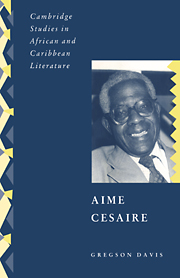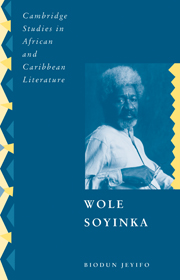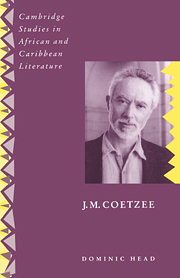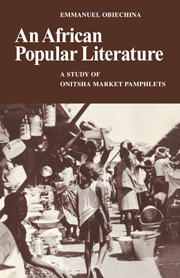Aimé Césaire
Aimé Césaire is arguably the best-known poet in the French Caribbean. His poetry and drama have established his formidable reputation as the leading francophone poet and elder statesman of the twentieth century. In this study Gregson Davis examines the evolution of Césaire's poetic career and his involvement with many of the most seminal political and aesthetic movements of the twentieth century. Davis relates Césaire's extraordinary dual career as writer and elected politician to the recurrent themes in his writings. As one of the most profound critics of colonialism, Césaire, the acknowledged inventor of the famous term 'negritude', has been a hugely influential figure in shaping the contemporary discourse on the postcolonial predicament. Gregson Davis's account of Césaire's intellectual growth is grounded in a careful reading of the poetry, prose and drama that illustrates the full range and depth of his literary achievement.
- Comprehensive examination of Césaire's literary and political career
- Looks at Césaire's life and work up until 1993, the date of his official retirement from politics
- Author is also from Antigua and a leading classicist with a named chair at Duke University
Product details
October 1997Hardback
9780521390729
228 pages
224 × 146 × 18 mm
0.38kg
Available
Table of Contents
- Preface
- Acknowledgements
- Chronology
- Introduction
- 1. From island to metropolis: the making of a poet
- 2. Exploring racial selves: 'Journal of a homecoming'
- 3. Inventing a lyric voice: the forging of 'Miracle Weapons'
- 4. Lyric registers: from 'Sun Cut Throat' to 'Cadaster'
- 5. The turn to poetic drama
- 6. The return to lyric: 'me, laminaria …'
- Epilogue
- Notes
- Bibliography
- Index.





